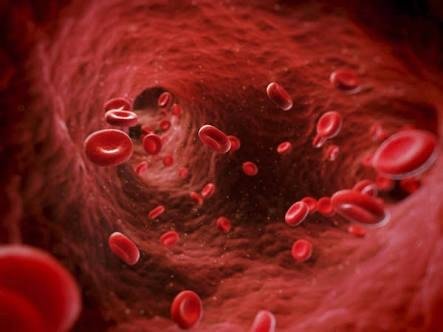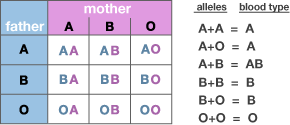What blood group will my baby inherit?
Is it possible to know the blood group that the baby will have?
There is a popular belief that the blood group of a baby must be equal to that of one of its parents. Sometimes it is also thought that it should be a combination of the blood type of the two. If the mother is O- and father A +, the baby should be something like O + or A-.

Credit
The truth is that the subject of the blood group is a little more complex. It is perfectly normal for a baby not to have the blood type of his parents. The laws of genetics do not operate mechanically .
In the transmission of the blood group and the Rh, different variables operate. It is necessary to know and examine them. This, to determine with greater degree of accuracy what will be the blood group of a baby.
Genetic aspects
The blood type of a baby depends on genetic factors . That is, of hereditary aspects. In each trait of the organism two genes always intervene, one of them comes from the father and another from the mother. The blood group is not the exception.
Now, genes are divided into dominant and recessive. The dominant ones are those that have more strength. Those who have the greatest possibility of imposing themselves on others, or manifesting themselves. In the case of blood, the "A" and "B" genes are dominant. The "0" gene is recessive.
Each blood group has different characteristics. The red blood cells and the serum of each of them are different. This gives rise to four blood groups : A, B, 0 and AB.
The blood group
Each human being has dominant genes and recessive genes. Regarding the blood group, the possibilities are the following:
Someone with group AB has a gene A and another B.
A person with group A can be AA or A0. The dominant gene A. prevails
If it is from group B, it can be BB or B0. The dominant gene B prevails
Someone with group 0 has both genes 0.
The combination of the dominant and recessive genes of the parents is what determines the blood group of the baby. The possible inheritable combinations are 16 . It is about the following:
IF THE FATHER IS A GROUP OR :
With mother Group A: the child will be Group A or 0
From mother Group B: the child will be Group B or 0
With mother Group AB: the child will be Group A or B
If the mother is Group 0: the child will be Group 0
IF THE PARENT IS A GROUP :
With mother Group A: the child will be Group A or 0
From mother Group B: the child will be Group 0, A, B or AB
With mother Group AB: the child will be Group A, B or AB
When the mother is Group 0: the child will be Group A or 0
IF THE FATHER IS GROUP B :
With mother Group A: the child will be Group 0, A, B or AB
If the mother Group B: the child will be Group B or 0
With mother Group AB: the child will be A, B or AB
From mother Group 0: the child will be B or 0
IF THE FATHER IS GROUP AB :
With mother Group A: the child will be Group A, B or AB
From mother Group B: the child will be Group A, B or AB
With mother Group AB: the child will be Group A, B or AB
If the mother is Group 0: the child will be Group A or B
The Rh factor
Each person's blood sometimes contains an antigen and sometimes not . If you have it, it is said that your Rh is positive. If you do not have it, it is said to be negative.
As in the blood group, Rh is determined by inheritance . Rh positive is a dominant gene. The negative is a recessive gene.
The inheritance possibilities of the Rh factor are nine. These are:
IF THE MOTHER HAS Rh- :
With father Rh-: the child will be Rh-
When the father is Rh + (++): the child will be Rh +
- In case of father Rh + (+ -): the child will be Rh + or Rh-
IF THE MOTHER HAS Rh + (++) :
With father Rh-: the child will be Rh + or Rh-
If the father is Rh + (++): the child will be Rh +
From father Rh + (+ -): the child will be Rh + or Rh-
IF THE MOTHER HAS Rh + (+ -) :
With father Rh -: the child will be Rh + or Rh-
A father Rh + (++): the child will be Rh +
In case of father Rh + (+ -): the child will be Rh + or Rh-
I have been learning about how blood types are passed through genes, but we have only worked with AB and O, not positives and negatives.
A good breakdown, thanks for the read :)
There are some really useful tables that can help explain this too!!
